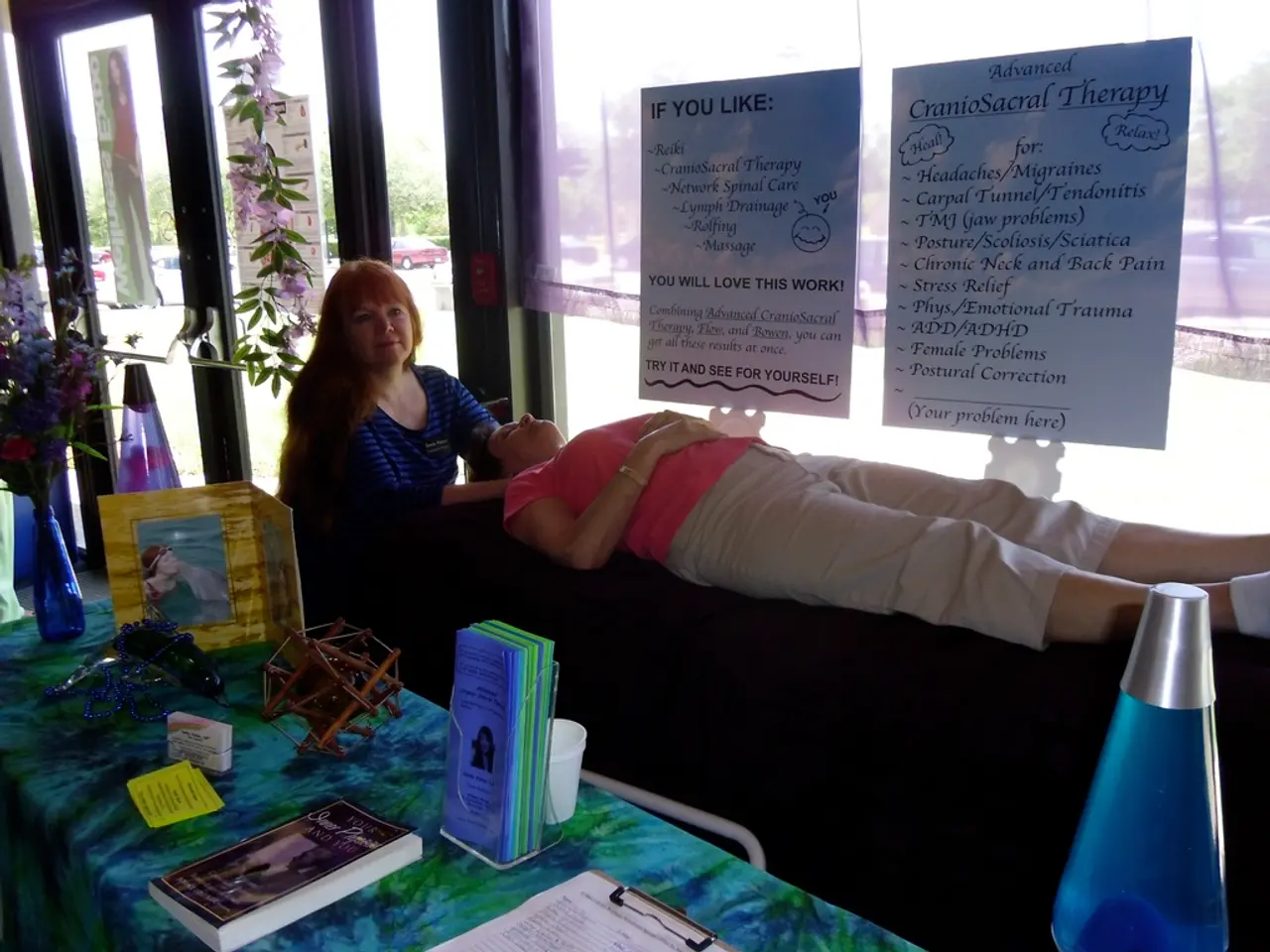Connection between sleep and anxiety: Symptoms and management strategies
In the complex world of mental health, two conditions often intertwine, creating a vicious cycle: anxiety and sleep disorders. This news article aims to shed light on the intricate relationship between these two conditions and the effective treatments, particularly Cognitive Behavioral Therapy (CBT) and its specialized form for insomnia, CBT-I.
Anxiety, a symptom triggered by perceived threats or stresses beyond the norm, can disrupt sleep by causing racing thoughts, heightened arousal, and difficulty relaxing. Conversely, poor sleep exacerbates anxiety symptoms by impairing emotional regulation and increasing stress sensitivity. Thus, treating one condition can have beneficial effects on the other, highlighting their bidirectional relationship.
Effective treatments for both anxiety and sleep disorders strongly emphasize CBT and CBT-I. These therapies address the interconnected nature of anxiety and sleep issues by targeting thought patterns, behaviors, and emotional responses that contribute to both conditions.
CBT, a talk therapy focusing on reformulating negative thought patterns and behaviors contributing to anxiety and poor sleep, has proven effective in improving emotional well-being, reducing anxiety symptoms, and diminishing sleep difficulties. CBT-I, a structured, evidence-based approach specifically targeting insomnia with components such as sleep restriction, stimulus control, and relaxation, reduces time to fall asleep, increases sleep duration and quality, and indirectly reduces anxiety by improving sleep.
Digital CBT platforms, such as SleepioRx and DaylightRx, have extended the accessibility of these therapies with robust clinical evidence supporting their efficacy. Up to 76% of SleepioRx users achieve healthy sleep, and 71% of DaylightRx users achieve anxiety remission, benefits sustained at least 6 months to 1 year post-treatment.
While medication may be used alongside CBT when necessary to manage symptoms promptly, it is typically not recommended as sole treatment due to its temporary effects and potential side effects. Sleep hygiene and relaxation techniques, such as maintaining consistent schedules and limiting caffeine or screen time, support treatment by reducing factors worsening sleep and anxiety.
In summary, CBT and especially CBT-I stand out as the frontline treatments connecting the management of anxiety and sleep disorders. This integrative approach is essential because improving sleep can directly reduce anxiety symptoms and vice versa, breaking the vicious cycle between these common comorbid conditions. Approximately 30% of the population do not sleep well, and if a person's anxiety significantly affects their happiness or interferes with daily life, or if they are experiencing intense, vivid dreams or lack of sleep that affects their ability to function, they should see a doctor.
- In the intricate relationship between anxiety and sleep disorders, Cognitive Behavioral Therapy (CBT) is a prominent solution, specifically its specialized form for insomnia, CBT-I.
- CBT, a talk therapy addressing negative thought patterns and behaviors affecting anxiety and poor sleep, has been effective in improving well-being, reducing anxiety symptoms, and diminishing sleep difficulties.
- CBT-I, a structured, evidence-based approach focusing on insomnia, reduces time to fall asleep, increases sleep duration and quality, and indirectly reduces anxiety by improving sleep.
- Other alternative therapies and sleep supplements can support the treatment of insomnia and anxiety, but CBT-I and CBT are often recommended due to their effectiveness in addressing the interconnected nature of these conditions.
- Sleep hygiene and relaxation techniques, like maintaining consistent schedules and limiting caffeine or screen time, can further enhance the benefits of CBT and CBT-I by reducing factors that worsen sleep and anxiety.
- In the realm of health-and-wellness and mental-health therapies-and-treatments, digital CBT platforms such as SleepioRx and DaylightRx extend access to these effective solutions, boasting significant improvements in sleep quality for up to 76% of users and anxiety remission for 71% of users over an extended period.
- While medication can temporarily manage symptoms alongside CBT, it is rarely recommended as a sole treatment due to potential side effects, with the integrative approach of CBT and CBT-I standing out as a more comprehensive solution for breaking the vicious cycle between anxiety and sleep disorders.





